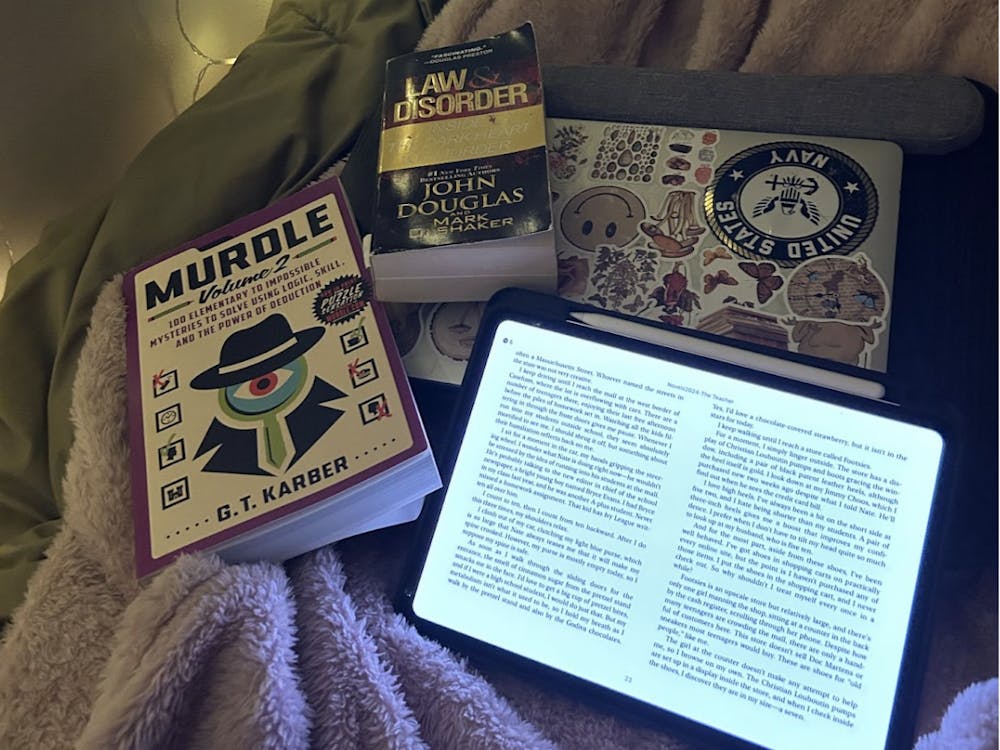Every so often, a movie comes around that tries its very hardest to capture the “feel” of a certain decade, whatever that may mean. More often than not, it means that the film will assemble a laundry list of things which made that decade significant, roll it all together, cook it into some strange hodgepodge pie and serve it to the audiences. Luhrmann’s 2013 rendition of The Great Gatsby attempted something like this with the 1920s, gathering all the set pieces of that decade of decadence and spinning them with some odd visual flair. It had the cars, the clothes, the buildings, the people —everything except the jazzy music. That movie, unfortunately, was met with a rather lukewarm reception, befitting a rather lukewarm movie. So what makes American Hustle, which attempts the same thing with the 1970s, more successful? Is it the music? Possibly. But I would argue that its success goes a bit deeper than that.
Set in 1978 New Jersey, American Hustle takes a look at the lives of Irving Rosenfeld and Sydney Prosser, a pair of con artists played by Christian Bale and Amy Adams. The pair are somewhat romantically involved with one another, leaving Irving conflicted, for he does not want to leave his wife (played by Jennifer Lawrence) due to his connection with his young son. The pair are soon caught by the overzealous Agent Richie (Bradley Cooper) of the FBI, who cons the con artists by offering their freedom if they help him execute a large-scale operation which could lead to the arrests of the Mayor of Camden and, later, several high-ranking mafia members. Thus begins a swirling of plots, all attempting to determine who will be arrested, who will marry whom and, most importantly, who all is getting conned, and by whom.
For a film that could have so easily fallen into the contrived and melodramatic, American Hustle does its very best to be as genuine as possible throughout its substantial two hour runtime. The film carries many plots and subplots, bouncing between them and points of view relatively often, giving its pacing something of a Pulp Fiction-esque feel (it is, however, much more chronological then Tarantino’s film).
Each thread of the story is both dramatic and funny enough to be engaging in its own right, without being horribly overbearing. Adam’s stint pretending to be a member of the British nobility, for instance, is hilarious to watch in places, but is not common enough for the joke to overstay its welcome.
The story does, however, run into some difficulties when viewed as a cohesive whole. This film is a great example of a movie unfortunately being less than the sum of its parts, as each individual plot element is more fun to watch than the whole it creates. There are so many elements and lines to follow that the overall plot of the story rapidly becomes lost, or thrown into the background, hindering the film’s overall sense of progression. As a result, the main story is overshadowed by all of the smaller stories it contains, and, while the film is still a joy to see, it does make one wish it had been tied together a bit better.
The cast all give exceptionally strong performances, particularly from the leading ladies. Both Adams and Lawrence create characters that thrive on the screen for every second of screentime they have. Both women let their talent give their characters a life one wouldn’t expect to see in a film like this, and this leaves viewers begging for more. Christian Bale, in his role of Irving, likewise dominates the screen in this sense; and, what’s more, he has finally shaken the habit of using his overly-gravelly Batman voice, which is definitely a point in his favor.
But the real star of this movie is its setting, which is absolutely glorious to behold. Everything from the lighting, to the music, to the cinematography perfectly creates the quintessential world for this movie to thrive within. Rarely has a film so aptly managed to capture the feeling of a decade without making it feel contrived or forced; Hustle, however, does so flawlessly. Despite how some of the hairstyles border on the ridiculous, every element of the film feels as though it could have been ripped directly out of the pages of history. The chosen musical arrangements are a wonderful homage to the 1970s, with iconic songs of the decade sure to keep audiences engrossed in the atmosphere from title card to credits.
American Hustle definitely succeeds where many in its genre have failed. It makes the world, sets the tone, crafts the characters and gives them plenty of fun things to do. Despite some potential confusion with the plot, there is more than enough to this movie to keep audiences engaged throughout its entire runtime. If its cast isn’t enough to sell the film, then its atmosphere will be, as the world of the film is so much fun to see and, for two hours, to become a part of. If at all possible, give this film a watch.
Overall rating: 4/5




